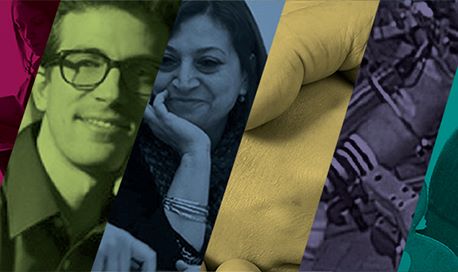Professor Olivia Sagan (MA, PhD, MBACP, CPsychol, AFBPsS, PFHEA) is the Centre Director for the Centre for Applied Social Sciences
She took up her post as Centre Director at Queen Margaret University in 2023, after 6 years as the Head of Division for Psychology, Sociology and Education. She is a Principal Fellow of the Higher Education Academy (HEA), an Associate of the Royal Society for Public Health, a member of the Undergraduate Education Committee of the British Psychological Society (BPS) and a member of British Association for Counselling & Psychotherapy (BACP). Olivia is regularly involved in overseas humanitarian projects.
- Overview
- Research Interests
- Research Publications
Olivia took up her post as Head of Division of Psychology, Sociology and Education at Queen Margaret University in 2017. A chartered psychologist and former psychodynamic counsellor with 20 years’ experience of working with adults with long term mental health difficulties, Olivia has extensive experience working with trauma and distress within specific populations, including refugees, the homeless, women experiencing chronic depression, individuals with eating disorders and people with combined physical and mental illnesses. Olivia is regularly involved in overseas humanitarian projects.
Taking a critical perspective of the biomedical model of human distress, Olivia’s phenomenological research foregrounds the experience of the individual. Her research is specifically interested in exploring the autonomous strategies that people develop through which they confront, negotiate and make meaning of their conditions and experiences. Her work thus explores the resilience and creativity of the ‘ill’ – in the face of discrimination, stigma, isolation and structural inequality. Her projects have included longitudinal studies of the ways in which adults with severe mental illness and limited verbal ability have employed autobiographic writing and visual art making outside of the clinical domain.
Her 2014 monograph Narratives of Art Practice and Mental Wellbeing: Reparation and Connection encapsulates much of her thinking regarding the creativity and resilience of the human being and the value of robust community-based creative projects. It examines the power of the visual image and the critical importance of maintaining and developing a counter narrative to the prevailing discourses of deficit through which illness and disability are routinely described.
In 2017, Olivia co-edited a volume of letters written by people with long-term depression in which she explored the role of writing in recovery. 'The Recovery Letters' has received extensive positive reviews from both professional and user groups within mental health services, and was included in the ‘Reading Well’ list for mental health 2019; nominated for World Book Night 2018 and selected as part of the ‘Time to Tackle’ Scotland care packages for isolated people with mental health difficulties during the COVID-19 lockdown. It has been widely translated and is also available as an audiobook. A follow up publication 'What I Do to Get Through' was published to positive review in 2021.
Olivia’s most recent work focusses on the lived-experience of chronic loneliness as a component of mental illness, and forms part of her edited anthology 'Narratives of Loneliness: Multidisciplinary Perspectives from the 21st Century'. Olivia has published widely in peer-reviewed journals.
Affiliations/Memberships to Other Organisations:
- Principal Fellow of the Higher Education Academy (HEA)
- Chartered Psychologist, British Psychological Society (BPS)
- Associate Fellow (BPS)
- Member of British Association for Counselling & Psychotherapy (BACP)
Olivia’s area of research expertise is in phenomenological qualitative research, exploring first person narrative of mental illness and its interface with creative expression and strategies for wellbeing. She works with a number of community-based mental health organisations as part of this work, and is involved in arts practice-based PhD projects with researchers with long-term mental illness.
Research Methods:
- Qualitative
- Narrative
- Phenomenological
- Psychoanalytic
- Arts based


